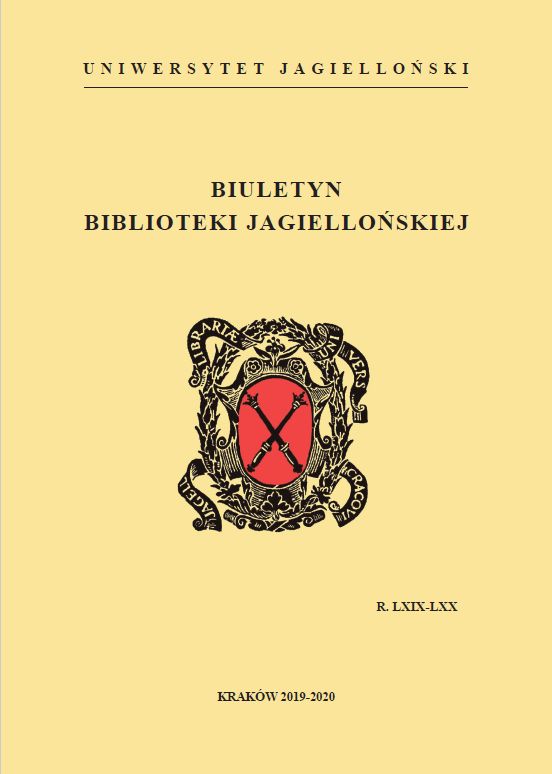Ifigenia w Taurydzie Eurypidesa: poetyka traumy, estetyka horroru i katharsis na scenie
Euripides’ Iphigenia in Tauris: the Poetics of Trauma, the Aesthetics of Horror and a Catharsis on the Stage
Author(s): Joanna PypłaczSubject(s): History, Literary Texts
Published by: Biblioteka Jagiellońska
Keywords: Euripides; Iphigenia in Tauris; Greek tragedy; catharsis; murder; horror; trauma; metatheatre
Summary/Abstract: Euripides’ tragedy Iphigenia in Tauris is an interesting combination of something that today’s theatre-goers would describe as being a classic horror play based on the motif of a childhood trauma (on the one hand) and – on the other hand – a cleverly designed metatheatrical study of how the mechanism of (Greek) tragedy really works. The terrifying, cruel and murder-obsessed Iphigenia is at one and the same time a wronged, unhappy child imprisoned in the body of a grown woman. She struggles with her pain by re-enacting her own unaccomplished murder in a sinister „theatre within a theatre”, i.e. in the temple of Arthemis, where – among macabre decorations made from remnants of the bodies of those Greek sailors that she has slain so far – she ritually kills any further newcomers from her homeland. An unexpected visit by her brother Orestes proves to be an effective remedy for Iphigenia’s distress. In this play, Euripides not only enables his audience to achieve catharsis, but also – through metatheatrical means – shows us exactly how a human mind is purged of dangerous emotions: as soon as Iphigenia stops concentrating on her own pain and starts to sympathize with Orestes, her mind is cured, and she is restored to a state of happiness. At the same time, the audience – who sympathize wih the characters – also feel a sense of relief. Iphigenia in Thauris is therefore a play within a play that shows us how a good tragedy works.
Journal: Biuletyn Biblioteki Jagiellońskiej
- Issue Year: 2022
- Issue No: 69-70
- Page Range: 5-15
- Page Count: 11
- Language: Polish

